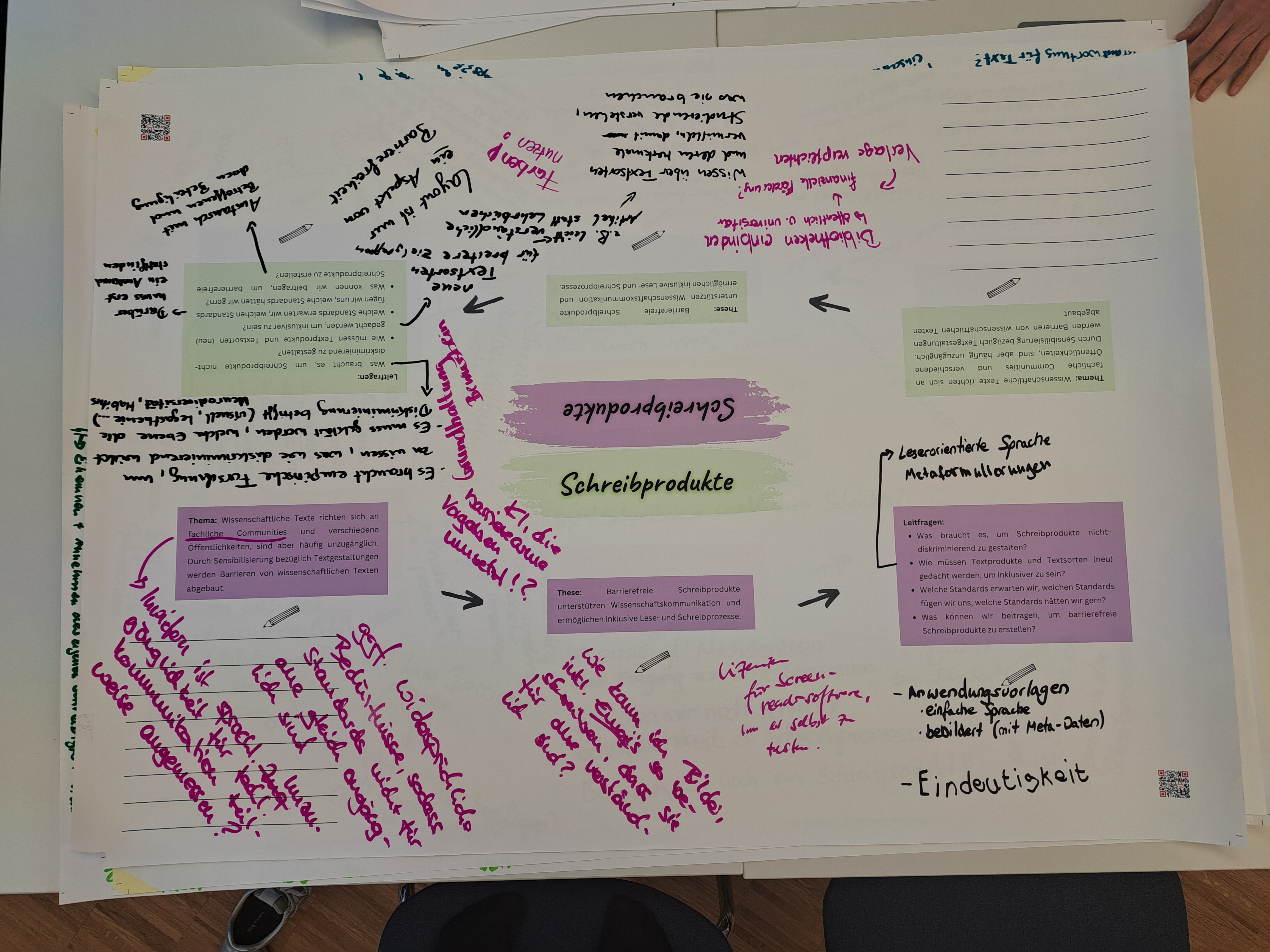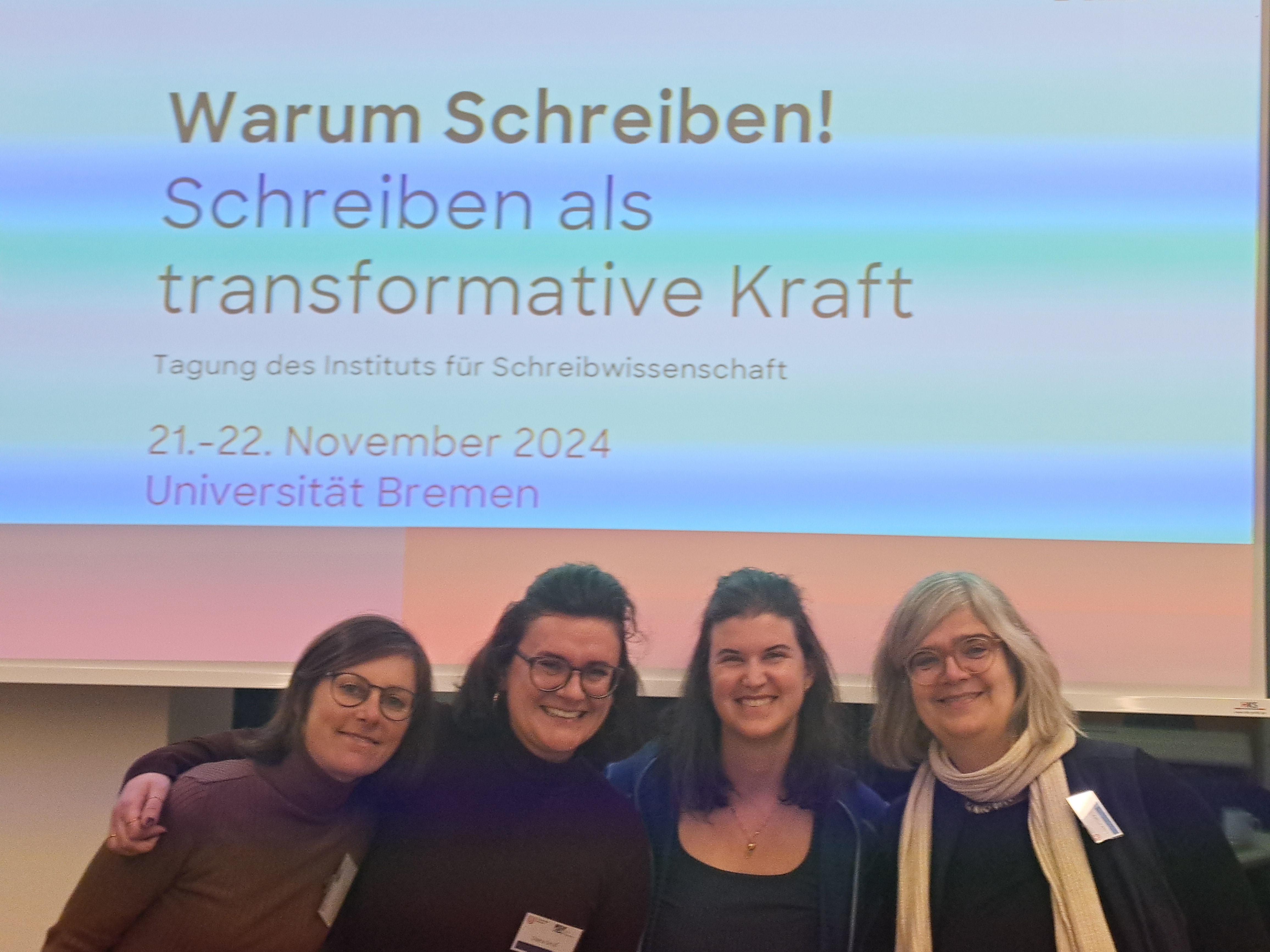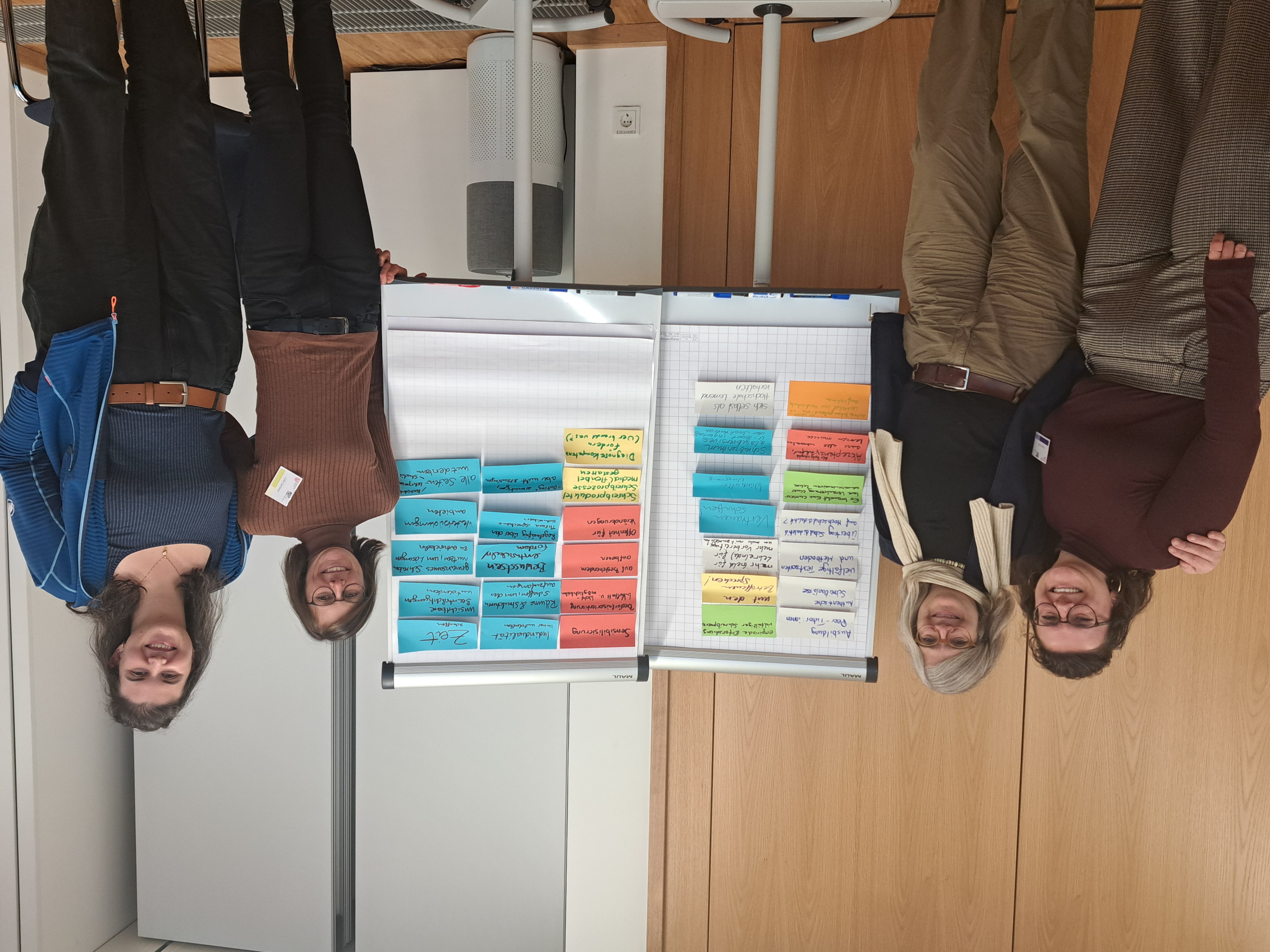/Contribution
Worldcafé “Writing for transformation - writing in transformation: accessibility and participation as the basis of inclusive writing didactics”
Organization: Dijana Simić (SDG 5), Erika Unterpertinger (GeWissS)
Participants: Stefanie Preiml (SP IV), Lisa Pfahl, Andrea Urthaler, Julia Ganterer (bidok)
UniNEtZ: SDG 5, SP IV
Cooperation partners: bidok (Platform “Disability, Inclusion, Documentation”, Institute of Educational Science, University of Innsbruck), GeWissS (Society for Scientific Writing in Austria)
Date: November 21 - 22, 2024
The collective “ Writing barrier-free(ly) designed” emerged from a cooperation between UniNEtZ, GeWissS and bidok and held a world café in November 2024 as part of the conference “Why writing! Writing as a transformative force” at the Institute for Writing Studies at the University of Bremen. The focus of the Wordcafé was a critical reflection on the teaching practices of academic writing, which strives for a sustainable transformation of writing didactics in the sense of the UN Sustainable Development Goals (SDGs) 4, 5, 10 and 17 and the associated motto “Leave no one behind!”.



Background: In university teaching, writing exercises such as freewriting or clustering are suitable for preparing students for the practice of academic writing, which for many is associated with uncertainty. These exercises are intended to have a transformative effect. However, it is rarely taken into account that they are based on ableist assumptions and at the same time create barriers: Namely, they are not equally feasible for all participants. It is therefore necessary to make writing didactics more inclusive.
The topic of “accessibility and participation” still receives little attention in German-language writing studies. The correlations between disability, mental health and writing are only gradually being highlighted, starting in the USA. The World Café “Writing for Transformation - Writing in Transformation: Accessibility and Participation as the Basis of Inclusive Writing Didactics” took this as an opportunity to bring together writing science and disability studies in the sense of inclusive writing didactics and to develop a participatory concept of barrier-free writing.
